Sofia Coppola | 1hr 50min

So intoxicating is the allure of fame in Priscilla that by the time its young, naïve schoolgirl is trapped behind the white iron gates of Graceland, she can barely distinguish between its privileges, constraints, and everyday banalities. Whether she is bribing classmates with her intimate connection to Elvis or being forced to dress according to his tastes, everything seems to blend into an uncritical acceptance of her strange new life, floating by on musical montages and dreamy vignettes. Watching these incredible contradictions of extravagance and mundanity inhabit the same space is a surreal experience, begging the question that Priscilla never consciously ponders in fear of losing all that she has been given – why her?
Perhaps this is the reason that Sofia Coppola washes Priscilla out with such a muted colour palette and low contrast lighting, lulling her guileless protagonist into a subdued state of passivity, though visually the cinematography is a missed opportunity. The curated mid-century American décor deserves to pop onscreen with a vibrancy that reflects Priscilla’s colourful obsession, and which heightens the pristine world of Graceland into the same fantasy realm as Marie Antoinette’s Palace of Versailles where Coppola drew flourishes of gold and pink through elaborate French interiors.
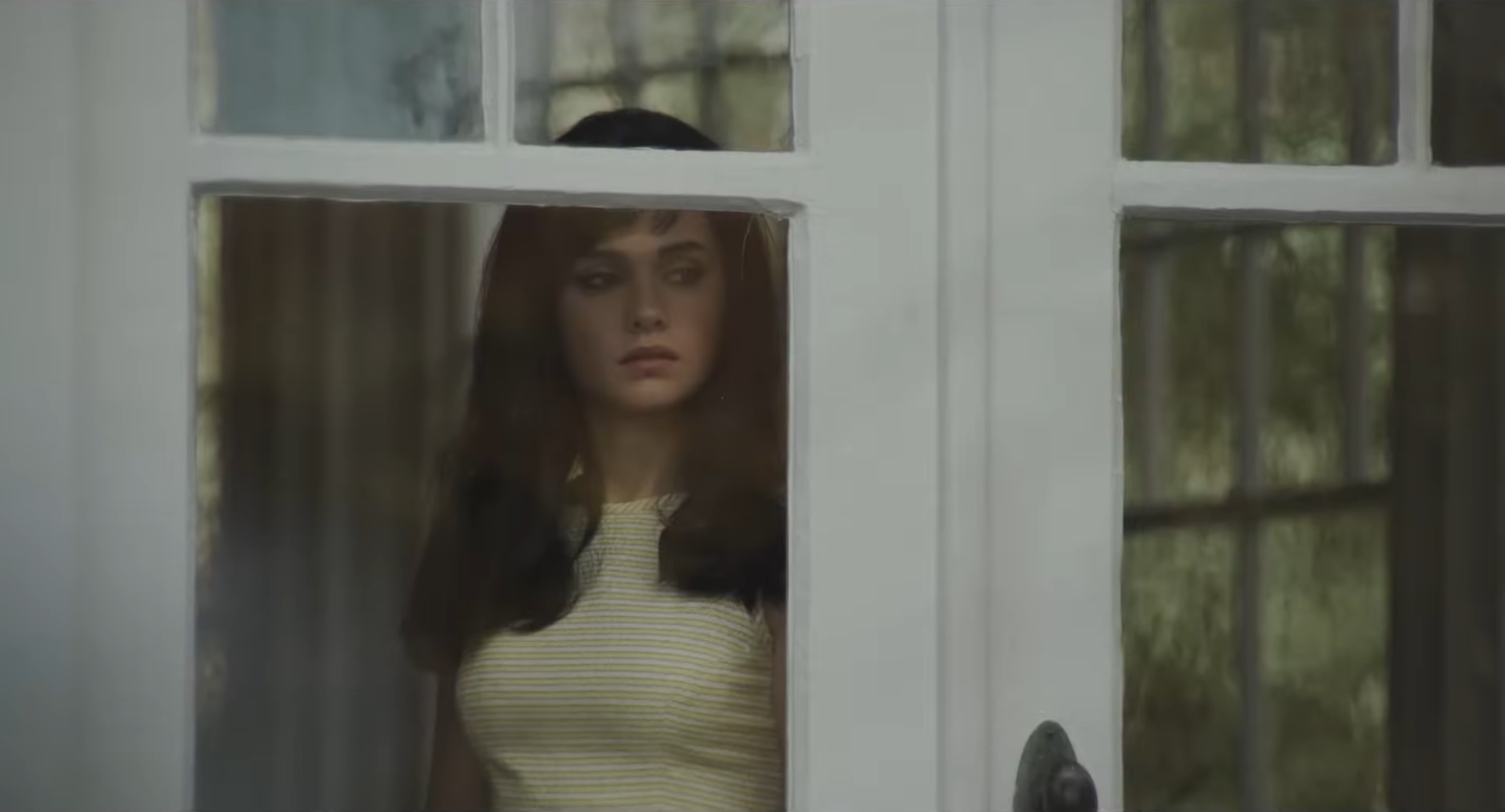
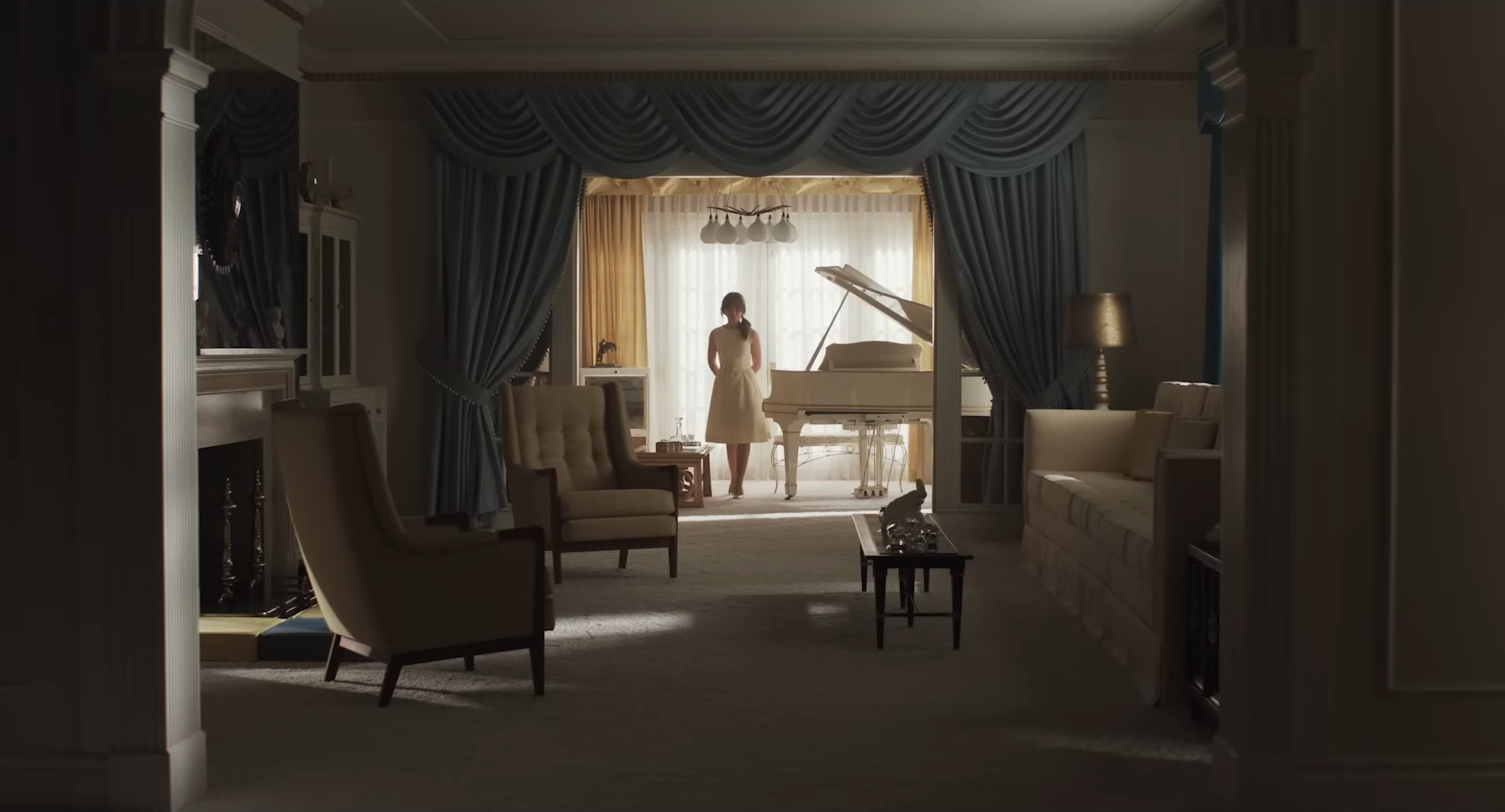
Still, both these films make for fascinating companion pieces in her filmography, reframing historical figures through introspective studies of female celebrity, youth, and exploitation. Where Marie Antoinette is born into royalty and thus doomed to suffer the consequences from birth, Priscilla’s ascension to widespread recognition is rapid and unexpected. Anachronistic pop music from across the late twentieth century give way to some excellent needle drops in both their soundtracks, but it is especially notable in Priscilla that Elvis’ music never makes an appearance beyond his diegetic performances. For once he is not the centre of the story, and we are finally given the chance to explore Priscilla’s identity outside of his shadow.
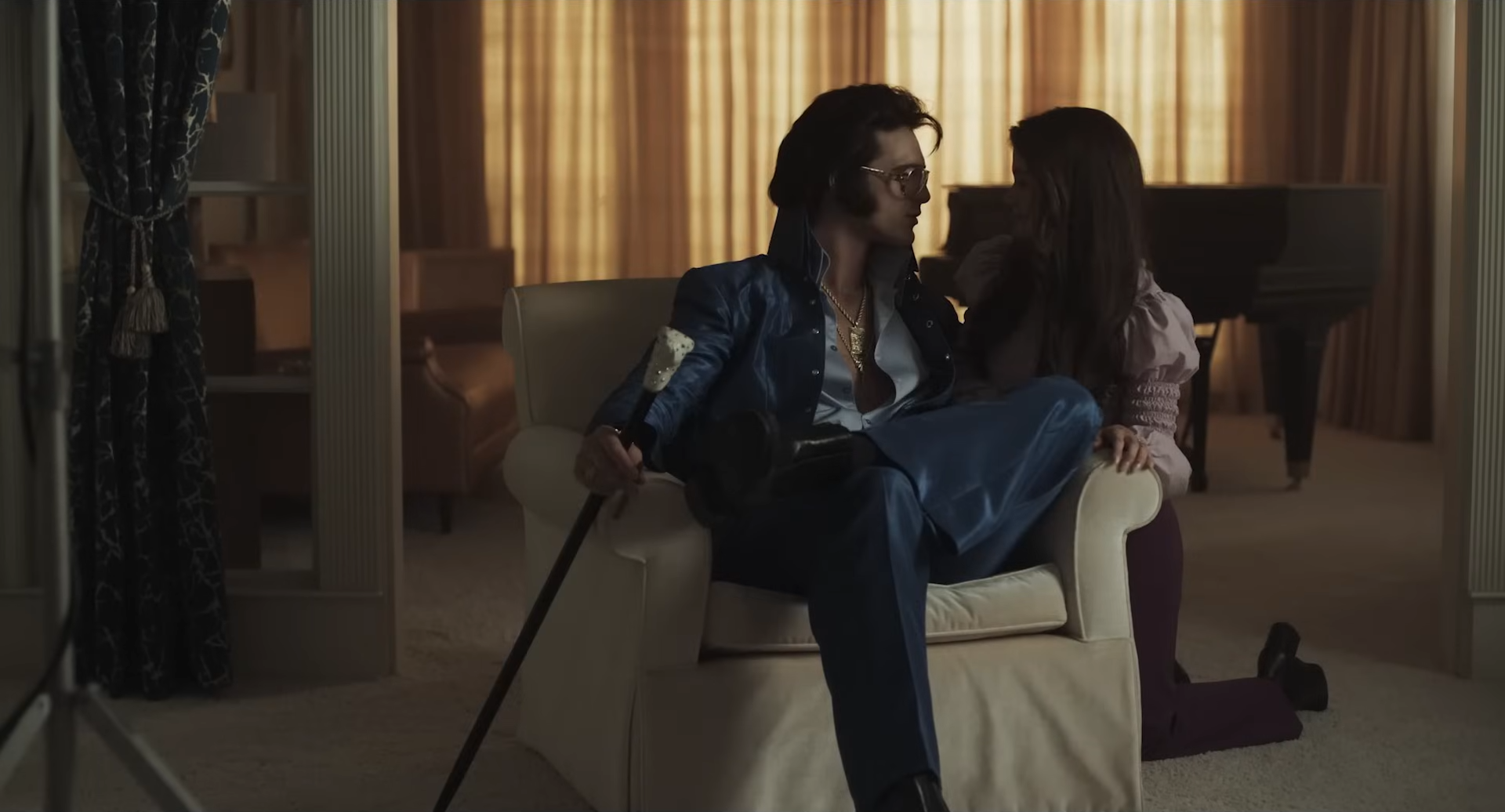
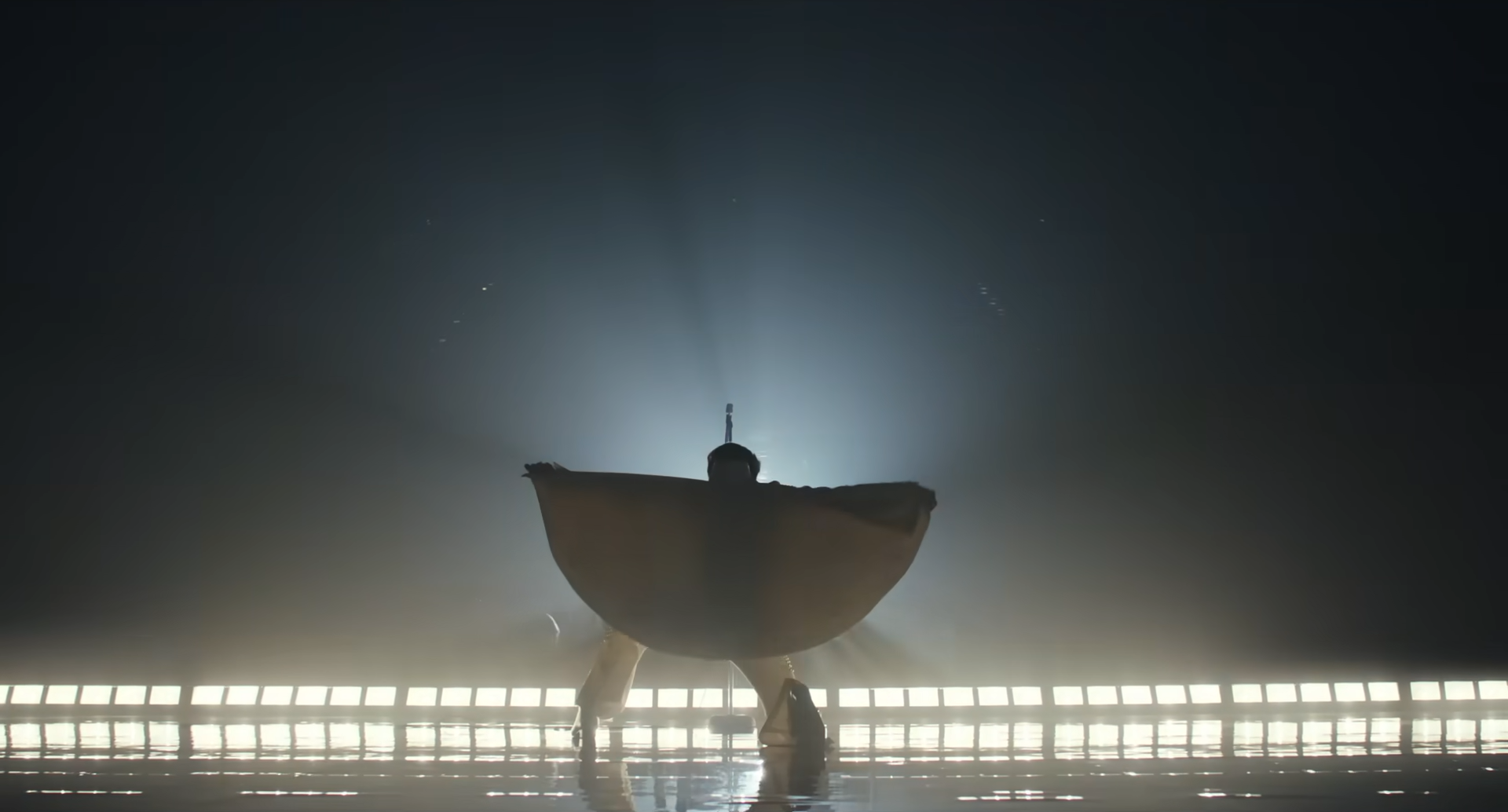
Next to Jacob Elordi’s tall, swaggering rockstar, Cailee Spaenee inhabits Priscilla’s tiny frame with an awkward innocence, and yet the transformation she makes from a 14-year-old teenager to a grown woman in her late 20s is extraordinary. Even when she isn’t speaking, close-ups narrow in tight on her awestruck face listening to the conversations bounce between Elvis and his friends, while anytime she comes forward with her own contribution she is sent back into her quiet shell. Besides the extreme limitations imposed on her freedom, there is little that distinguishes her from her peers, making this miraculous fulfilment of a teenage girl’s fantasies all the more tragic.
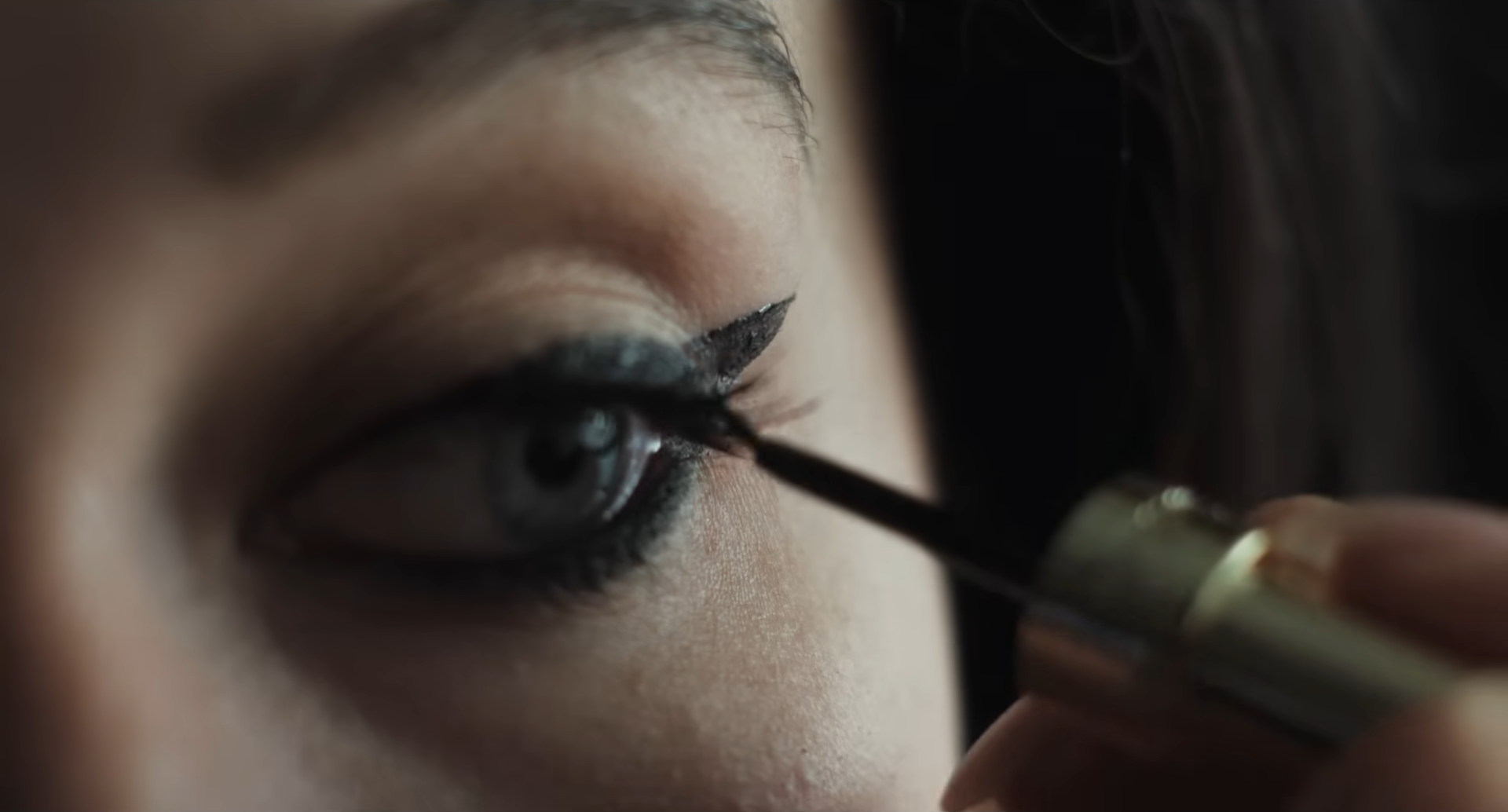
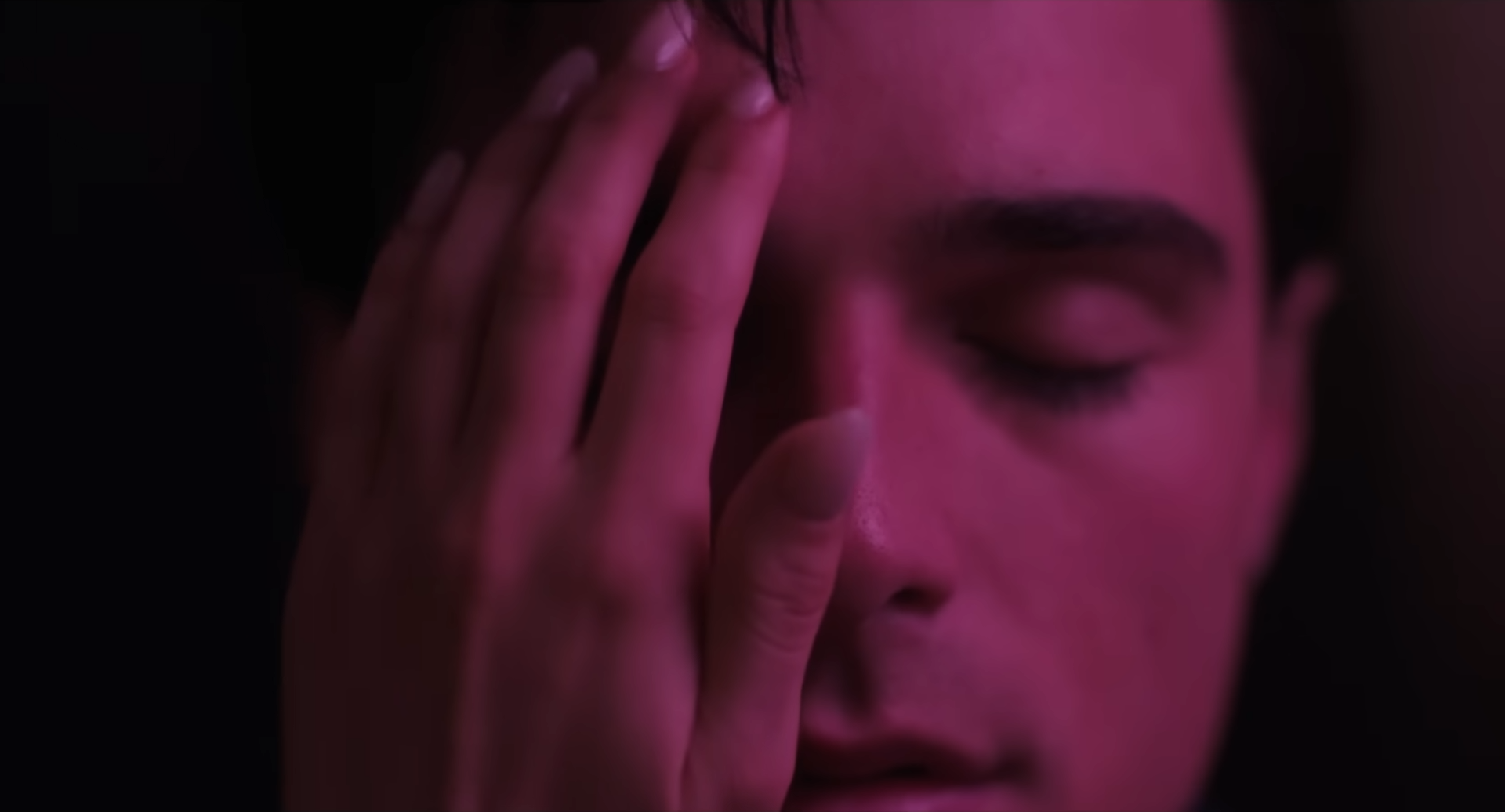
Still, as Priscilla ages she also discovers desires that she had always denied, and which don’t always align with Elvis’. He places her on a pedestal, elevating her as a bastion of purity while sleeping around with movie stars in a prime example of the Madonna-whore complex. For Priscilla though, this neglect simply leaves her sexually frustrated and emotionally demoralised, forcing her to adopt the image of the faithful, virginal wife he has crafted for her in the public eye. Only when she storms off in an argument for the first time and Elvis comes chasing after her does she realise just how important this is to him. Suddenly, the power she wields in this relationship comes into focus, and the seeds of future rebellions are planted in her mind.
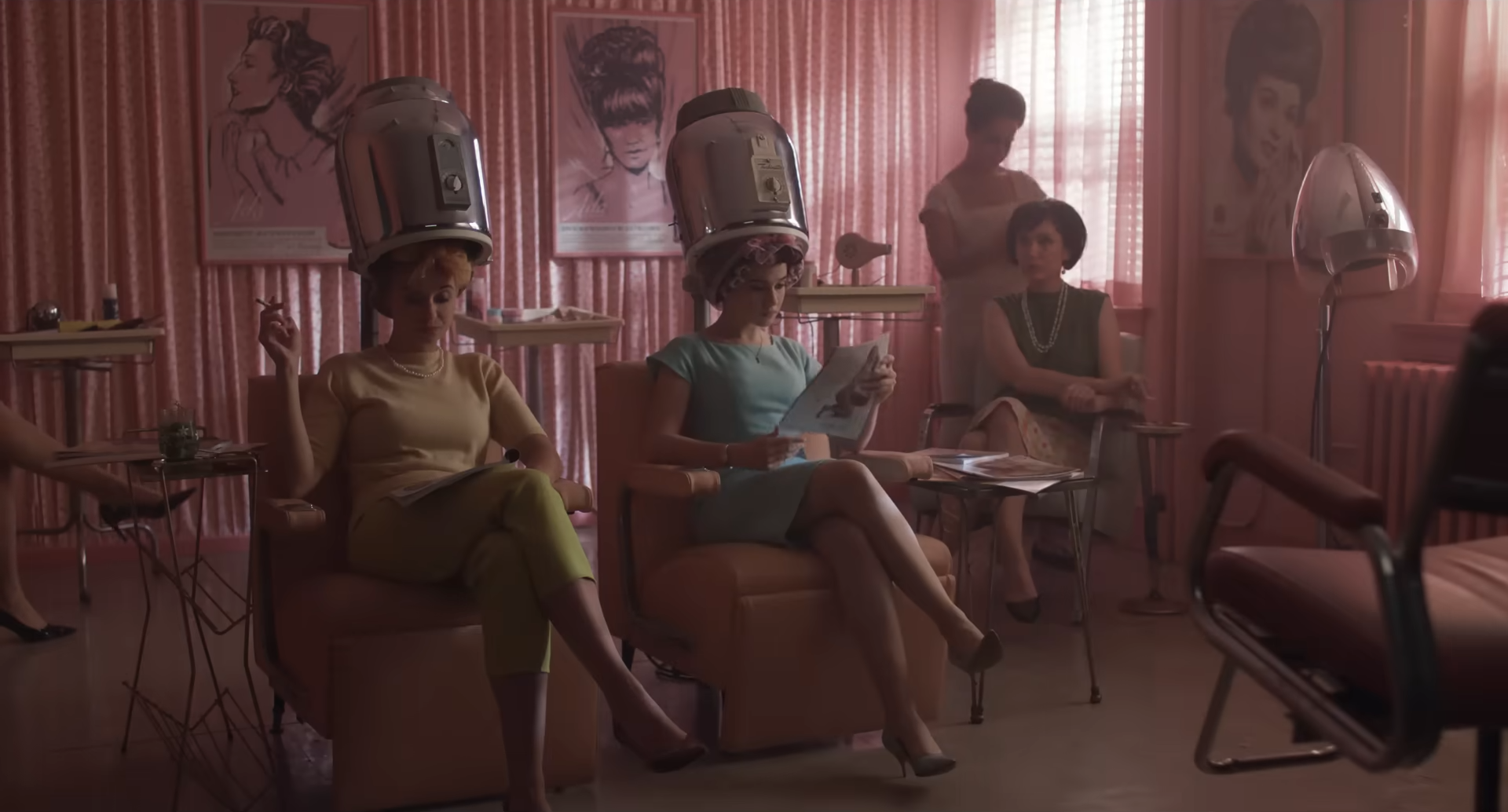
Priscilla’s newfound confidence in her femininity does not immediately free her from the prison of the public eye, as even right before she heads into hospital to give birth, she applies fake lashes and makeup for the paparazzi. Nevertheless, it does empower her to begin carving out her own future and identity, while Elvis’ disappears into a haze of substance abuse. Had she not been randomly picked from the crowd as a teenager, perhaps she would have been among those swathes of fans crowding Graceland’s gates as she drives out of his life, and yet she is the one with the wisdom and perspective to free herself from the patriarchal cult of celebrity they have all been caught up in. All of a sudden, Priscilla’s lonely, insulated world of normalised frivolity doesn’t seem so unique, as Coppola’s languid tone poem of passive obsession reveals its hypnotic hold over western culture at large, and finally offers this grown woman the agency that she was denied in youth.
Priscilla is currently playing in cinemas.
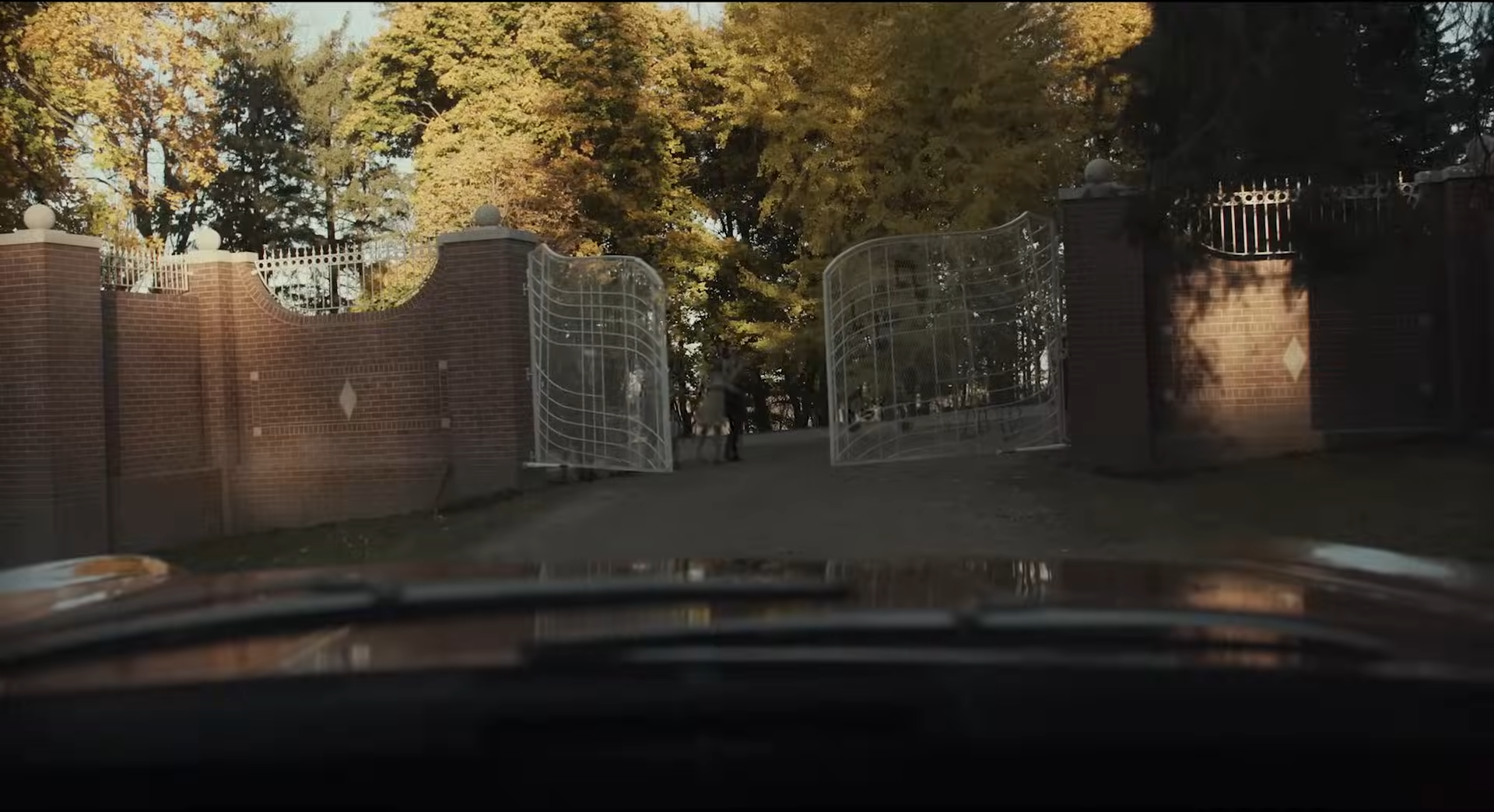
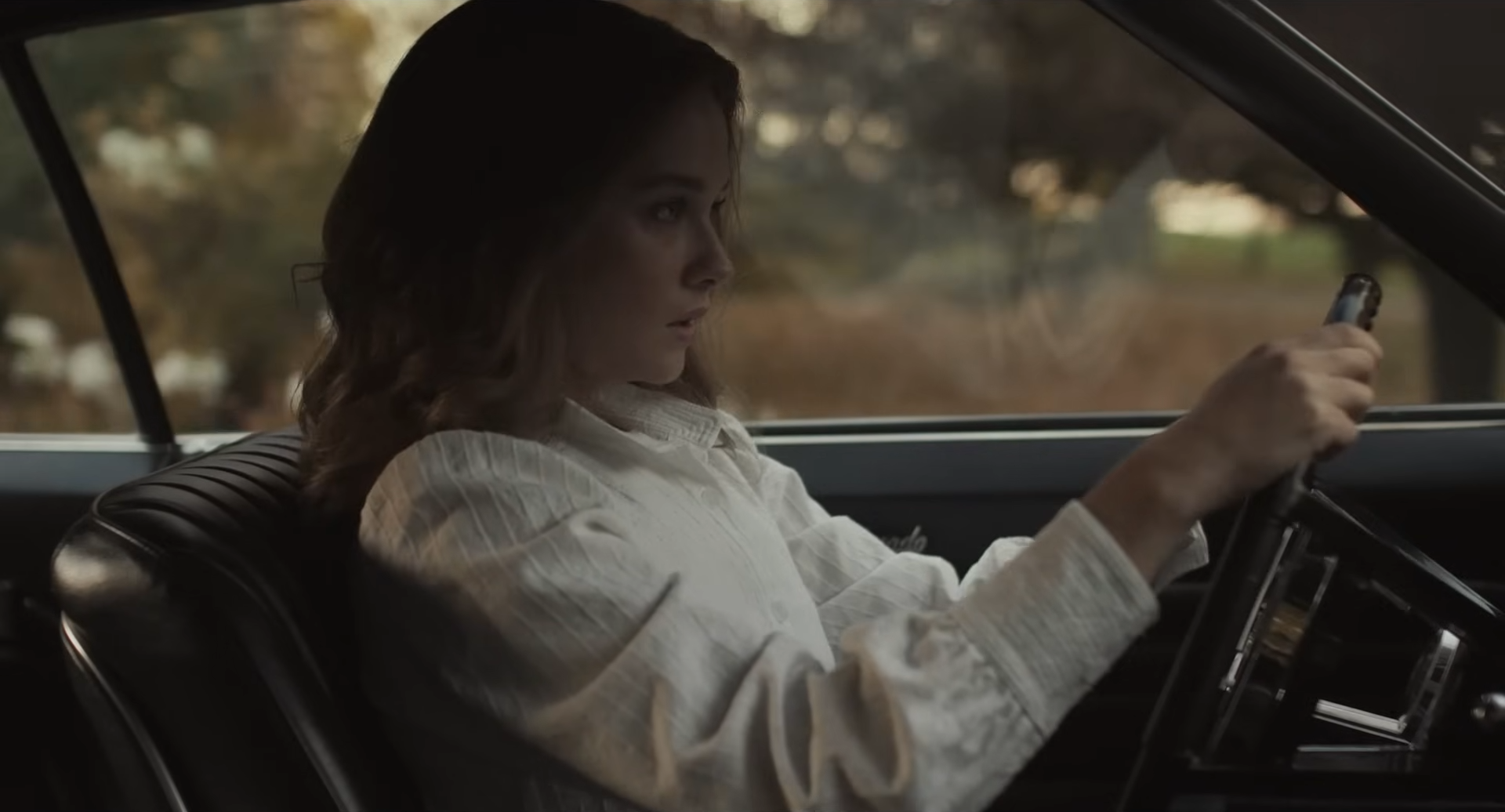

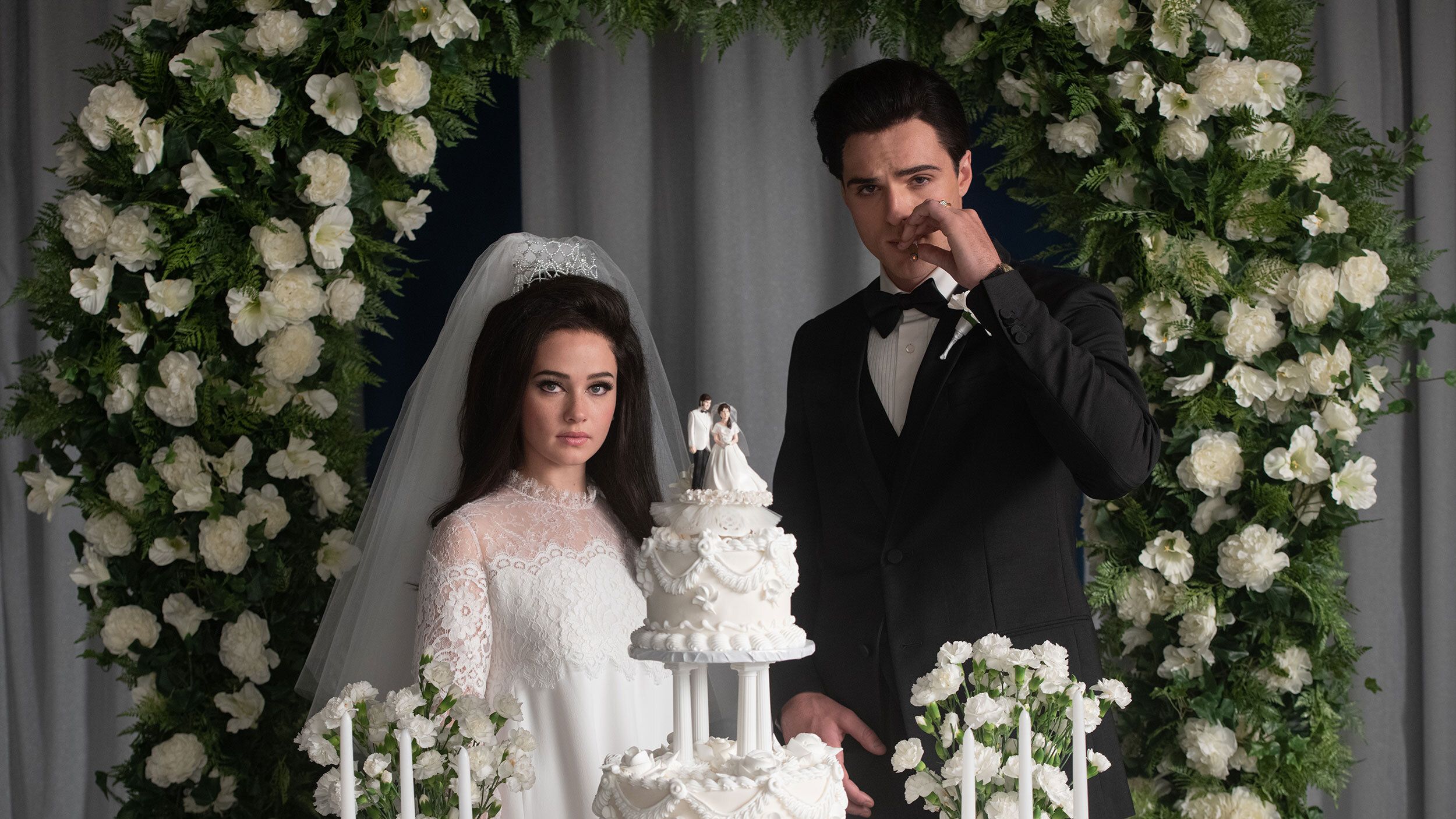
Pingback: 2024 Oscar Predictions and Snubs – Scene by Green